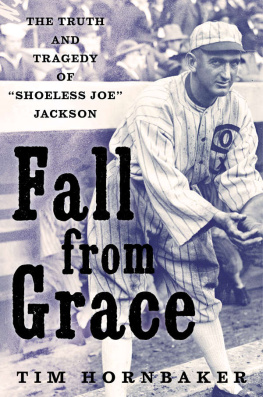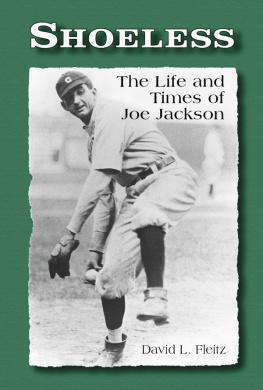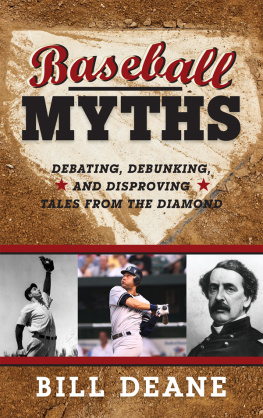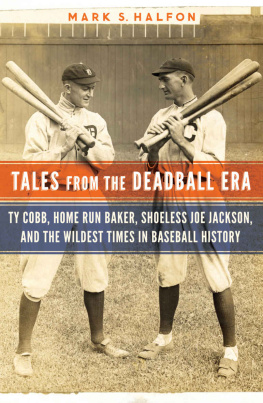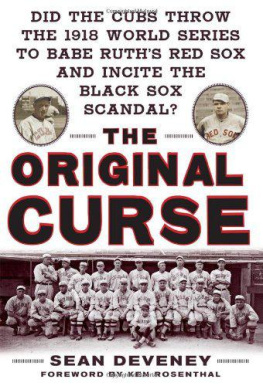Copyright 2016 by Tim Hornbaker
All rights reserved. No part of this book may be reproduced in any manner without the express written consent of the publisher, except in the case of brief excerpts in critical reviews or articles. All inquiries should be addressed to Sports Publishing, 307 West 36th Street, 11th Floor, New York, NY 10018.
Sports Publishing books may be purchased in bulk at special discounts for sales promotion, corporate gifts, fund-raising, or educational purposes. Special editions can also be created to specifications. For details, contact the Special Sales Department, Sports Publishing, 307 West 36th Street, 11th Floor, New York, NY 10018 or .
Sports Publishing is a registered trademark of Skyhorse Publishing, Inc., a Delaware corporation.
Visit our website at www.sportspubbooks.com.
10 9 8 7 6 5 4 3 2 1
Library of Congress Cataloging-in-Publication Data is available on file.
Jacket design by Tom Lau
Jacket photos courtesy of the Library of Congress
All photographs and documents, unless otherwise noted, are courtesy of The Shoeless Joe Jackson Virtual Hall of Fame website (blackbetsy.com)
Print ISBN: 978-1-61321-913-3
Ebook ISBN: 978-1-61321-914-0
Printed in the United States of America
This book is dedicated to three important people whove
influenced me during my lifetime:
Neil Jenkins
DS Lee
Jim Cypher
CONTENTS
INTRODUCTION
A single moment can make a hero.
Throughout the history of sports, legends have been born as a result of extraordinary performances by remarkable athletes. In more than a century of Major League Baseball, there are an untold number of time honored moments; occasions in which records were set, championships were won, and heroic feats were performed by individual players, forever establishing their immortality. These defining moments are rare, making them even more special, and the unexpected triumph of a player and team were cherished by fans for their exclusivity. For those at Comiskey Park on the South Side of Chicago on July 4, 1916, such a moment arose in the ninth inning of an emotional game against the St. Louis Browns.
Independence Day was always a big drawing event, and families from throughout the city traveled to the stadium to enjoy the national pastime. This year was no different. An estimated 25,000 people jammed the park, and the local crowd wanted to see the White Sox win the second game of a doubleheader after losing the morning affair, 21. Headed into the contest, no one couldve predicted how remarkable this event was going to be. In fact, the game was going to be so overwhelmingly special that a superstar was about to become a legend right before their eyes.
Things were going well for the home team until the top of the ninth, when the Browns produced two runs, leaving the Sox in a hole headed into the bottom of the inning. Eddie Collins, the faithful second baseman, started a last ditch rally by singling his way on base. He was succeeded in the lineup by slugger Joe Jackson of South Carolina, then in his sixth full big-league season. Acknowledged for having one of the most distinctive nicknames of the Deadball Eraor any era for that matterShoeless Joe was an enigma in many respects. Naturally gifted, he didnt play the game with science but rather with an innate flair that differed from his contemporaries. He was known for denting outfield walls with his powerful drives, and extra base hits were commonplace for Jackson. Joe was popular in Chicago, but since joining the Sox in August 1915, had yet to live up to the hype in the minds of some critics.
At bat against the Browns in the ninth, Joe readied himself in the batters box and waited patiently. His opponent on the mound, Bob Groom, was a tall and imposing right-hander, but to Jackson every pitcher looked the same. He didnt care who was out there, nor did he anticipate any specific pitch.
Grooms offering looked right, and Joe gave the fans what they were hoping for: a tremendous blast to deep right-center. The ball landed safely and Jackson rounded the bases with all of his immense might. He had one thought in mind: scoring. That meant he was going to ignore the halt sign given by manager Pants Rowland at third base. But Rowland could see what Jackson couldnt, and knew the ball was already back in the infield. He knew a play at the plate was going to be too close to let him go. Jackson didnt seem to care one way or another.
The Browns catcher, Hank Severeid, was an experienced man and could certainly hold his own. He eyed the throw and planted himself for a collision while at the same time preparing to make the tag. Jackson was blinded by his determination. The fact that a 6-foot, 175-pound backstop was standing in front of the plate did not deter him for a second. Moments later the inevitable occurred, and Jackson made impact. Home plate umpire Billy Evans saw the ball beat the runner and called Joe out, but reversed his decision after seeing the ball fall free from Severeids control. The latter had dropped it, and Jackson was safe. Since Collins had scored as well, the game was now tied and the holiday crowd erupted into an immense roar.
Notably, Jackson was unaware of his safe status when Evans made his call. The reason was because he smashed the back of his head on the ground during the forceful slide, and nearly knocked himself unconscious. Within seconds of realizing what was transpiring before them, spectators collectively hushed, acknowledging what apparently was a serious injury to Jackson. A handful of minutes passedwhich probably seemed like an eternitybefore he was helped to his feet. Again, the crowd responded audibly, grateful that Joe wasnt badly hurt. His teammates tried to allow him to walk on his own, but Jackson fell to the ground en route to the dugout and was quickly carried off the field. He received immediate treatment, including icepacks, and recovered enough to return to the outfield the next inning. It was an amazing display of courage which wasnt lost on the humongous throng of fans.
The Sox would go on to win the game, 76, in 13 innings. Sportswriters covering the action were all too ready to lionize Jackson, and relayed vivid accounts to readers the following day. If it had been a hero play staged for the movies, it couldnt have been arranged better, declared James Crusinberry in the Chicago Daily Tribune . He added: Never before [was there] a greater hero at Comiskey Park. However, nearly 100 years later, the significance of the game has been lost in the annals of baseball history. But for the man known as Shoeless Joe Jackson, it was a defining moment in a turbulent career.

Headed into the 1916 season, sportswriters and fans alike were concerned about Jacksons ability to meet expectations. His career statistics were in decline, and his days of challenging for the league batting championship were a thing of the past. To make matters worse, Joe failed to provide the spark needed for the Sox to win the 1915 pennant, and rumors circulated about a possible trade after the season. The questions about his ability, health, and overall attitude were discouraging to Jackson, but he knew deep down the need to come into his own while wearing a Chicago uniform. He had to demonstrate that he was all-in, and deeply committed to the franchise. Independence Day 1916 allowed him to do just that, and the fans decided that he was one of them. He was a big-hearted warrior on the diamond and his actions earned him a mountain of respect from an eternally loyal group of enthusiasts. And, in effect, his legend in Chicago was born.

